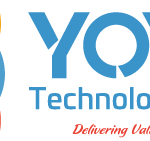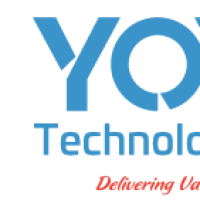| Job Title | Backend Software Developer |
| Department | Information Systems |
| Positions | 6 |
MAIN PURPOSE OF THE JOB
The Back-End Software Engineer will develop, maintain, and optimize server-side applications and services. This role requires collaboration with front-end developers, product managers, and stakeholders to deliver high-quality, scalable, and efficient software solutions.
Key Responsibilities
- i. Design & Development: Design and build robust APIs using micro services architecture with languages such as Java and Python, while collaborating with the development team to define and implement effective architecture and design pattern
- ii. Database Management: Implement, maintain and optimize database systems such as Microsoft SQL database systems, ensuring data integrity, security, and query performance for scalabili
iii. Testing & Deployment: Develop unit and integration tests to ensure software quality, while actively participating in CI/CD processes for seamless automated deployment.
- Performance Monitoring: Monitor application performance, troubleshoot issues, and implement logging and monitoring tools for proactive system maintenance.
- Documentation & Collaboration: Maintain clear documentation of the codebase and APIs, while collaborating closely with cross-functional teams to provide technical insights.
- Develop the software development strategy and work plans for the section in line with the organization’s strategic priorities.
Qualifications:
Essential Requirements
- i. Education: Bachelor’s degree in Computer Science, Software Engineering, or a related
field.
Relevant certifications (e.g., AWS Certified Solutions Architect, Microsoft Azure
Developer) are a plus.
| ii. Working Experience: 3-5 years of experience in backend software development, with
proven expertise in building and maintaining scalable applications and services.
Desirable Requirements
i. ITIL4 Certification ii. Agile Certification iii. Security Certifications such as CSSLP iv. Proven experience in application architectural patterns such as Micro services and working within an agile framework. |
| Technical Skills:
i. Programming Languages: Expertise in programming languages such as Java, Python and PHP with a demonstrated ability to write clean, efficient, and maintainable code. ii. Frameworks & Tools: Proven experience with developing frameworks such as React Js, React Native, Java, Python Django, Yii, RESTful APIs, and designing micro services architecture for scalable and efficient systems. iii. Database Management: Strong knowledge of relational databases (Microsoft SQL Server, MySQL) iv. Version Control: Proficient in Git, with a solid understanding of version control concepts, including branching, merging, and managing pull requests to facilitate effective collaboration and code management. v. Cloud Services: Experience with cloud platforms (AWS, Azure, Google Cloud) and server less architecture. vi. DevOps Practices: Knowledge of CI/CD tools (Jenkins, Git Lab CI) and containerization (Docker, Kubernetes). vii. Testing & Debugging: Familiarity with testing frameworks and tools (JUnit, Mocha, Postman) for unit and integration testing. |
| Essential Qualities
i. Analytical Thinker: Ability to analyze complex problems and devise efficient solutions ii. Team Player: Strong collaboration skills to work effectively in cross-functional teams. iii. Adaptability: Willingness to learn new technologies and adapt to changing requirements. For instance, picking up a new programming language or framework as the project needs to evolve. iv. Excellent systems analysis as well as knowledge and interest in emerging technologies v. Strong conceptual, problem diagnosis and decision making skills |
| Personal Attributes |
7
- i. Problem-Solver:
Demonstrated aptitude for analyzing issues and providing effective solutions quickly, particularly in high-pressure situations.
- ii. Customer-Centric Mindset:
A commitment to prioritizing customer needs and ensuring their satisfaction, exhibiting empathy and responsiveness.
iii. Team Player:
Collaborative spirit, willing to work closely with internal teams to achieve common goals and enhance service delivery.
- Technical Curiosity:
A genuine interest in technology and a desire to learn about new tools, solutions, and industry trends to better serve customers.
Key Performance Indicators (KPIs)
- i. System Stability & Performance
100% uptime of backend services and APIs through effective system monitoring, performance tuning, and resolution of critical issues within SLA timelines.
- ii. Code Quality & Maintainability
98% code coverage through unit and integration testing, with regular peer code reviews and adherence to clean code and security standards.
iii. Development Efficiency
95% of tasks completed within sprint timelines by effectively managing time, using agile methods, and collaborating with cross-functional teams.
- API Reliability & Scalability
99% success rate of API calls in production, with robust versioning, documentation, and effective use of caching, load balancing, and security measures.
- Incident Response Time
95% of system issues and bugs resolved within 24 hours of reporting, ensuring minimal disruption to users and services.
- Deployment Success Rate
100% deployment success rate with zero critical post-deployment issues by following
CI/CD practices and automated testing pipelines.










